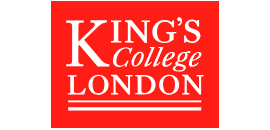- ...
Postgraduate Studentships - Search for funding opportunities.


Start date: 1 October 2025
Interviews: 11 and 12 March 2025
Mode of attendance: Full time
Award: The Brain Health in Gen2020 programme is offering 4 year PhD full-time fellowships suitable for both basic and clinical students from a wide range of science backgrounds: including biological and physical sciences, medicine, mathematics and computer science.
The fully funded studentships cover tuition fees, stipend and bench fees.
Tuition fees: Tuition fees will be covered by the programme.
Stipend: Students will receive an enhanced stipend for each year of study (approx. £25,487).
Bench fees: An allowance will be provided for research consumables, trainings and conference attendance.
Eligibility: The Admissions Portal will assign you a provisional fee status (Home, EU or Overseas) based on the information included in your application, but this will be reviewed by the Admissions team when they process your application. After Brexit, all students will be categorised by Admissions as either Home or Overseas. We only accept home applications this year.
Project description: PhD opportunities are offered across a wide range of subject areas, focusing on understanding the fetal origins of childhood brain health. The PhD projects will include human developmental neuroscience, maternal immune activation and immunology, MRI imaging and analysis and computational modelling of fetal and neonatal brain development. Clinicians are encouraged to apply. For more information about work carried out in the Brain Health in Gen2020 visit https://www.kcl.ac.uk/research/brain-health-in-gen2020 and for the MRC Centre for Neurodevelopmental Disorders visit https://www.devneuro.org/cndd. Please note that the PhD projects are agreed after an offer has been accepted.
Overview of the studentship programme can be found at www.devneuro.org/cndd
Information about Postgraduate study at King’s College London can be found at
About the IoPPN (http://www.kcl.ac.uk/ioppn/about/index.aspx)
Studying at the IoPPN (http://www.kcl.ac.uk/ioppn/study/index.aspx)
MSc programmes at the IoPPN (link to https://www.kcl.ac.uk/ioppn/study/postgraduate-taught)
Research degrees at the IoPPN (link to https://www.kcl.ac.uk/ioppn/study/postgraduate-research-programmes)
Candidates should have or expect an upper second class degree (2:1) in a STEM subject. If applicants possess a lower second class (2:2), a research-based MSc at merit or distinction level is required.
If English is not your first language you will be required to provide evidence that you meet the minimum English requirements, Band D, as prescribed by the university’s English Language requirements.
At King’s, we are deeply committed to making the university an inclusive, welcoming and inspiring place to work and study. We encourage and welcome applications from across the community and all appointments are made solely on merit.
Applicants must complete and submit an online admissions application, via the admissions portal by midnight (23:59 GMT), 12th February 2025 (Wednesday).
On the ‘Choose a programme’ section, search programme name: ‘MRC Centre for Developmental Neurobiology Research MPhil/PhD (Full-time)’, then select 1 October 2025 start date to complete your application. In your application, you will be asked to include:
• Academic Transcripts - where applicable, academic transcripts must be submitted with the online admissions application
• Details of your qualifications - you will need to attach copies
• Details of previous employment - please include your CV
• A personal statement describing your interests, why you wish to apply for this programme and if applicable, any specific challenges faced. Please include this as an attachment rather than using the text box (1 page maximum).
• Academic References – all applications require 2 supporting references. If the applicant is relying on their referees to submit a reference directly to the College after they have submitted their admissions application, then the applicant must ensure that (1) their chosen referee is made aware of the document submission deadline (i.e. 12th February) and (2) that the reference needs to be sent from an institutional email address. NB: References will not be requested by King’s until you have actually submitted your application, so you will need to submit your application well in advance of the deadline in order to ensure that references have been received by the stated deadline.
• English language test result if applicable. These are not required at the point of applying if you have not yet taken a test, however if you are assessed as requiring this, any offer would be conditional on the provision of a test that meets the B and D requirement.
In the Funding section, please tick box 5 and include the following reference: GEN2020-25
EU nationals with settlement status will need to provide a share code to prove your status. Please visit gov.uk website to obtain the share code, download the outcome in a PDF format and upload the PDF to your application.
Please note there is no need to complete the Research Proposal section in your application. For specific queries, you are welcome to email Karen Davis (karen.2.davis@kcl.ac.uk) for administrative matters and Katie Long (katie.long@kcl.ac.uk) for more information regarding the projects and studentship.
If you have any queries regarding the application process, please contact the Education support team at ioppn.pgr@kcl.ac.uk. References must be received by the deadline for the applicant to be eligible. Only shortlisted applicants will be contacted.
Home candidates only.

...